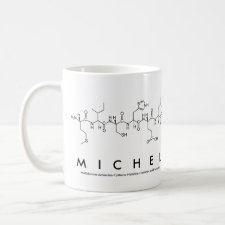
Authors: Voshell SM, Gagné MR
Article Title: Rigidified dendritic structures for imprinting chiral information.
Publication date: 2005
Journal: Organometallics
Volume: 24
Issue: (26)
Page numbers: 6338-6350.
DOI: 10.1021/om050647y
Abstract: Chiral, polymerizable P2Pt(S-BINOL) metallodendrimers constructed with a rigid phenyl benzoate ester linkage were copolymerized into highly porous and cross-linked methacrylate-based polymers. The performance of these polymers with respect to BINOL exchange reaction enantioselectivities was compared to similar metallodendrimers constructed of more flexible benzyl ether repeat units. The increased rigidity of the ester linkage resulted in higher enantioselectivities for a BINOL/Br2BINOL exchange reaction, though exact structure/selectivity relationships are difficult to establish. At elevated temperatures, BINOL loss is observed leading to the inactivation of sites, though it is the less selective, and therefore less hindered sites, that are preferentially deactivated. Enantiomeric ratios of up to 84:16 were observed for the substitution of P2Pt(S-BINOL) with (±)-Br2BINOL within the imprinted polymer site, which equals the best yet achieved.



Join the Society for Molecular Imprinting

New items RSS feed
Sign-up for e-mail updates:
Choose between receiving an occasional newsletter or more frequent e-mail alerts.
Click here to go to the sign-up page.
Is your name elemental or peptidic? Enter your name and find out by clicking either of the buttons below!
Other products you may like:
 MIPdatabase
MIPdatabase









